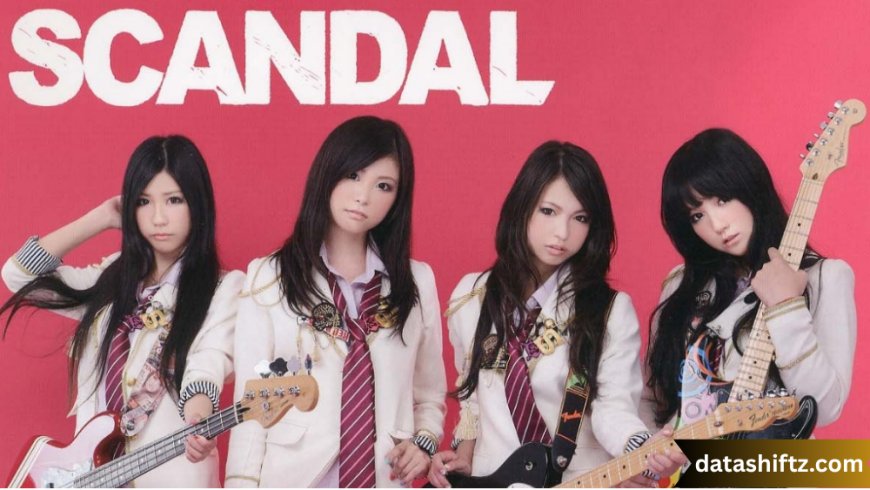Scandal: The Anatomy of Public Controversy in the Modern Era

Introduction
In a world increasingly shaped by media, public perception, and instant communication, the word “scandal” evokes images of disgrace, betrayal, shock, and intrigue. From political misconduct and celebrity affairs to corporate fraud and social media exposés, scandals often dominate headlines and public discourse. They possess the power to ruin reputations, destabilize governments, collapse businesses, and reshape entire industries — sometimes overnight.
But what truly constitutes a scandal? Why do some incidents become scandalous while others pass quietly? What role do the media, public sentiment, and institutional accountability play in escalating or managing these situations?
In this in-depth article, we explore the sociological, psychological, and systemic aspects of scandals, review famous examples, and analyze how scandals unfold and impact society today.
What Is a Scandal?
Definition and Key Characteristics
A scandal is generally defined as an action or event involving moral or legal wrongdoing, which becomes widely known and leads to public outrage or shock. The term originates from the Greek word skandalon, meaning "a stumbling block" or "offense."
While scandals can arise in various contexts — political, religious, corporate, or personal — their defining elements are usually:
???? Key Elements of a Scandal (List Form)
-
Wrongdoing – Ethical, legal, or moral violations.
-
Exposure – Leak, investigation, whistleblower, or media report.
-
Public Interest – The matter concerns or affects a wide audience.
-
Reputation Damage – Loss of trust, status, or credibility.
-
Accountability Demand – Call for action, resignation, or punishment.
-
Widespread Media Coverage – Amplification through press or social media.
-
Emotional Reaction – Shock, betrayal, or indignation from the public.
Scandals are not always about what is illegal — they often highlight violations of social expectations, breaches of confidentiality, or hypocrisy in public life.
Types of Scandals
Scandals Across Sectors and Societies
Scandals vary widely in scope and subject matter. While some involve personal lapses in judgment, others reveal deep structural flaws in institutions or governments. Here's a breakdown of the most common types of scandals:
????️ Classification of Scandals (Table Form)
| Type of Scandal | Description | Examples |
|---|---|---|
| Political Scandals | Abuse of power, corruption, or illegal acts by leaders | Watergate, Panama Papers |
| Corporate Scandals | Fraud, deception, or ethical violations by companies | Enron, Volkswagen Emissions |
| Celebrity Scandals | Affairs, abuse, or controversial statements | Tiger Woods, Kanye West controversies |
| Religious Scandals | Misconduct or cover-up in religious institutions | Catholic Church sexual abuse crisis |
| Academic Scandals | Plagiarism, data fabrication, or admissions fraud | Operation Varsity Blues (college scam) |
| Media Scandals | Bias, misinformation, or unethical reporting | News of the World phone hacking |
| Sports Scandals | Doping, match-fixing, or personal misconduct | Lance Armstrong, FIFA corruption |
| Social Media Scandals | Viral controversies involving influencers or brands | Logan Paul’s video, Brand boycotts |
The Lifecycle of a Scandal
How Scandals Break, Escalate, and Resolve
Scandals often follow a predictable arc, which can be broken down into stages. From initial rumors to public outrage and eventual resolution, this cycle can unfold in days, weeks, or even years.
???? Lifecycle of a Scandal (List Form)
-
The Leak or Incident – An act of wrongdoing occurs or is uncovered.
-
Media Attention – Journalists or social media users highlight the issue.
-
Public Outcry – Citizens demand answers, boycotts, or resignations.
-
Investigation or Denial – Authorities or accused parties respond.
-
Escalation – New details emerge; pressure intensifies.
Scandals serve as social correctives — forcing institutions to be more transparent, ethical, and accountable. However, the way scandals are handled often determines whether justice is served or if the public loses faith in systems.
Famous Scandals in History
When the World Watched in Shock
Some scandals have become historical landmarks, changing the course of politics, economies, and societies. These incidents are not just stories of wrongdoing — they’re case studies in power, ethics, and reform.
???? Notable Historical Scandals (Table Form)
| Scandal | Year(s) | Sector | Impact |
|---|---|---|---|
| Watergate Scandal | 1972–1974 | Political | Led to Nixon’s resignation, increased media vigilance |
| Enron Collapse | 2001 | Corporate | Shattered investor trust, sparked financial reforms |
| Panama Papers Leak | 2016 | Financial | Exposed global tax evasion networks |
| FIFA Corruption Case | 2015 | Sports | Top officials arrested, restructured global soccer |
| Cambridge Analytica | 2018 | Tech/Media | Raised alarm on data privacy, influenced elections |
| Harvey Weinstein | 2017 | Entertainment | Triggered #MeToo movement globally |
Scandals in the Digital Age
How Social Media Has Changed Scandal Culture
In today’s hyper-connected world, social media has amplified the speed, scale, and reach of scandals. A single tweet, video, or leaked email can go viral within minutes, affecting millions of people and forcing immediate responses.
???? Social Media's Role (List Form)
-
Real-Time Outrage – Public reaction is instant and often emotionally charged.
-
Hashtag Campaigns – #CancelCulture and #MeToo have shifted power dynamics.
-
Citizen Journalism – Anyone with a phone can expose wrongdoing.
-
Trial by Internet – Online users often pass judgment before facts emerge.
While social media has democratized accountability, it has also created a space where outrage can be performative, and context often gets lost.
The Psychology of Scandals
Why Are We So Fascinated?
Scandals evoke a mix of emotions — anger, curiosity, disgust, and sometimes even excitement. Psychologically, they appeal to:
-
Moral outrage – People feel compelled to react when societal norms are broken.
-
Schadenfreude – A subconscious thrill at the downfall of the powerful or famous.
-
Desire for justice – Scandals activate our sense of fairness and accountability.
-
Curiosity and gossip – The human brain craves novel, high-stakes stories.
Scandals often provide a mirror to society — reflecting both what we value and what we tolerate.
Preventing and Managing Scandals
Institutional and Individual Responsibility
No organization or public figure is immune to mistakes. But how a scandal is handled can define its legacy.
????️ Scandal Prevention and Response (List Form)
-
Ethical Training – Reinforce integrity at all organizational levels.
-
Transparency Mechanisms – Use audits and independent reviews.
-
Whistleblower Protections – Encourage internal reporting.
-
Crisis Management Teams – Prepare for reputational emergencies.
-
Swift Action – Respond with facts and empathy, not deflection.
Leaders and institutions that take proactive measures to address risk can avoid not just scandals, but systemic damage.
Conclusion
Scandals will continue to be part of the human story — because wherever there is power, secrecy, and human fallibility, there’s potential for wrongdoing. But how we as individuals, societies, and systems respond to scandals can determine whether they become cautionary tales or catalysts for change.
Understanding the anatomy of a scandal — its causes, escalation, and consequences — equips us not only to hold others accountable, but also to examine our own values, institutions, and leadership.
In a world where trust is currency, integrity remains the strongest defense against scandal. Let every scandal be a moment not just of disgrace, but of reflection, reform, and responsibility.




























